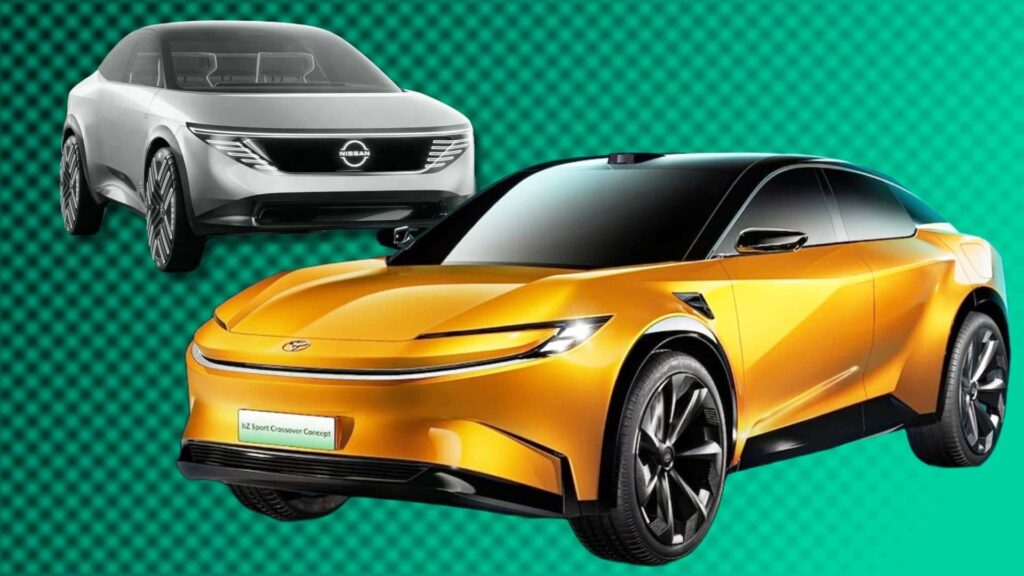In the midst of an uncertain future for the automotive industry, the possibility of major consolidation among big players is becoming increasingly likely. However, despite the challenges faced by Nissan, the idea of merging with its historical competitor, Toyota, was never on the table.
Speaking at CES 2025 in Las Vegas, Toyota Chairman Akio Toyoda addressed the impending consolidation within the Japanese auto industry, specifically highlighting merger talks between Honda and Nissan. Toyoda confirmed that Toyota was not involved in any discussions regarding a potential merger with Nissan, citing concerns about anti-monopoly laws that would likely prevent such a union between direct competitors.
The chairman suggested that the Japanese government, as well as other global governments, may have opposed a merger between two companies that were once similar in size and scope. Instead, Nissan and Honda are set to engage in merger discussions with the aim of combining forces by late summer 2026.
While Toyoda was at CES to promote Toyota’s upcoming live-in startup incubator, Woven City, he also commented on the wave of consolidation facing the Japanese auto industry amidst the shift towards electric and software-defined vehicles, particularly as China’s car sector continues to advance.
Reflecting on the current landscape of the industry, Toyoda acknowledged the uncertain future that lies ahead, joking that predicting future outcomes could make him very wealthy. Despite Toyota’s continued profitability and status as the world’s leading car company by sales volume, the company is not immune to the challenges posed by the evolving automotive landscape, especially in light of China’s growing influence in the market.
As the automotive industry navigates through unprecedented changes, with a focus on electrification and technological advancements, Japan’s biggest automakers are each facing unique challenges and opportunities as they move forward into 2025. Toyota, Nissan, and Honda are all grappling with shifting market dynamics and the need to adapt to a rapidly changing industry landscape. Toyota is not one to be left behind in the race for high-tech EVs. As more and more competitors like Tesla, Rivian, and Chinese automakers continue to push the boundaries of what is possible in terms of software upgrades and new tech features, Toyota is also scrambling to catch up.
While Toyota has been successful in making money and maintaining strong sales, the company recognizes the need to accelerate its efforts in the high-tech EV space. This realization has led to a series of announcements about new electric models and upcoming tech features that will be unveiled at CES later this week.
In a surprising turn of events, Nissan, once Japan’s second-largest automaker, has been struggling in recent years with declining sales and profits. Executives have even gone so far as to warn that the company may only have a limited time left without a lifeline. That lifeline appears to be a planned merger with Honda, which would create the world’s third-largest automaker by volume. Mitsubishi is also rumored to be in talks to join the union, further solidifying the partnership.
Meanwhile, Toyota is looking to strengthen its position in the industry by forming closer ties with smaller companies it already has partnerships with, such as Subaru, Mazda, and Suzuki. Toyota’s President, Akio Toyoda, has emphasized that the competition in the industry is no longer about growing volume but rather about total transformation.
Toyoda expressed excitement about the potential outcomes of the Nissan-Honda merger and how it will drive innovation and competitiveness in the market. He is eager to see how the two companies will collaborate and develop more competitive products, setting the stage for a new era in the automotive industry.
In conclusion, Toyota is determined to stay ahead of the curve and remain a key player in the evolving landscape of high-tech EVs. By acknowledging the need for transformation and embracing partnerships and collaborations, Toyota is positioning itself for success in a rapidly changing industry.

